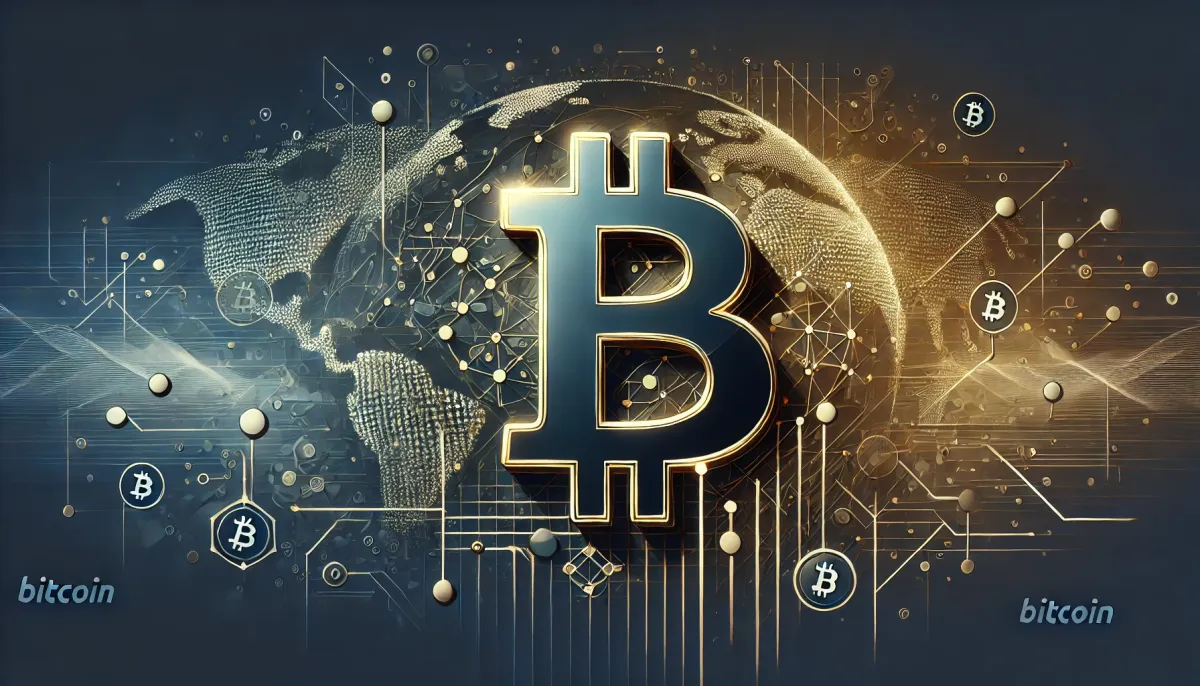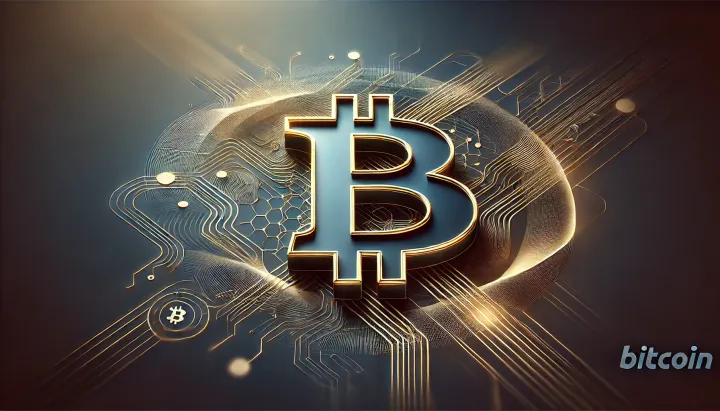Unlocking Financial Freedom: Bitcoin's Role in Global Empowerment
The October 7, 2024 episode of Bitcoin for Millenials featured Christian Keroles shares his journey of discovering Bitcoin and becoming a maximalist, which he describes as a transformative process for both his personal and professional life.

Briefing Notes
My 'briefing notes' summarize the content of podcast episodes; they do not reflect my own views. If you have comments about this briefing note, please leave a comment below (requires signing up for a free blog subscription). Note that some of the podcast episodes I summarize may be sponsored: don't trust, verify, if the information you are looking for is to be used for decision-making.
Summary
The October 7, 2024 episode of the Bitcoin for Millenials podcast explores how Bitcoin is driving a paradigm shift in finance, empowering individuals and institutions worldwide. Christian Keroles discusses Bitcoin’s unchangeable protocol, its utility as a tool for human rights, and its potential to reshape global energy and economic systems. The conversation highlights Bitcoin’s ability to promote financial sovereignty, particularly in regions where traditional financial structures are failing or oppressive.
Take-Home Messages
- Bitcoin’s immutability offers financial security: Its unchangeable protocol provides a stable, long-term foundation for personal and global financial strategies.
- Bitcoin is a critical tool for activists under oppressive regimes: By offering censorship-resistant financial solutions, Bitcoin empowers human rights organizations and individuals facing financial exclusion.
- Bitcoin mining drives renewable energy growth: In developing regions, Bitcoin mining can foster economic opportunities and stabilize energy grids by incentivizing renewable energy production.
- Institutional resistance to Bitcoin adoption is strong but waning: Despite opposition from traditional financial institutions, Bitcoin’s core strengths continue to push it forward as a leading financial tool.
- Bitcoin is reshaping the global financial landscape: As Bitcoin adoption grows, it challenges outdated financial systems and offers a new model for economic independence and sustainability.
Overview
Christian Keroles explores Bitcoin’s growing role in global finance, human rights, and energy markets. He recounts his personal journey from investing in various digital assets to becoming a Bitcoin maximalist, emphasizing the unique value Bitcoin brings compared to other cryptocurrencies.
A significant part of the discussion centers on Bitcoin’s immutability, which sets it apart as a reliable store of value in contrast to the fluctuating rules and policies of fiat currencies. Keroles explains how Bitcoin’s unchanging nature creates trust and security, especially for individuals living in countries where authoritarian governments use financial systems to suppress dissent. By using Bitcoin, these individuals can maintain financial independence and access funds without fear of state interference.
The conversation also dives into Bitcoin’s potential to drive economic development in underserved regions through Bitcoin mining, particularly in promoting renewable energy initiatives. Keroles sees Bitcoin mining as a key driver for stabilizing energy grids in areas with unreliable infrastructure, creating opportunities for sustainable growth. Bitcoin’s role as both an economic and technological tool is clear, offering a path forward for financial independence and resource management.
Stakeholder Perspectives
- Retail Investors: Concerned about volatility but see Bitcoin as a hedge against inflation and long-term store of value. They are seeking stable financial strategies within Bitcoin.
- Human Rights Organizations: Rely on Bitcoin to provide financial independence for activists. Their focus is on navigating regulatory risks while leveraging Bitcoin’s permissionless structure.
- Institutional Investors: Traditional financial institutions may resist Bitcoin’s rise due to its disruptive nature but are increasingly recognizing its value as a new asset class.
- Governments: Governments in regions with weak financial systems could adopt Bitcoin to stabilize their economies, but they face regulatory challenges and concerns over financial sovereignty.
- Energy Sector: Bitcoin miners and energy producers see opportunities to integrate Bitcoin mining with renewable energy projects, though they must balance environmental concerns with economic opportunities.
Implications
Bitcoin’s ability to provide financial sovereignty for individuals under oppressive regimes has substantial implications for global human rights. As more activists and organizations adopt Bitcoin, it challenges the power of authoritarian governments to control access to money, potentially leading to broader political and social changes. Governments may be forced to rethink their approach to financial regulation as Bitcoin continues to gain ground in regions where traditional banking systems are weak or corrupted.
On the economic front, Bitcoin’s integration with renewable energy has the potential to significantly alter how energy is produced and consumed in developing regions. By incentivizing energy production through Bitcoin mining, these regions can stabilize their power grids and create new economic opportunities. However, environmental concerns and the energy-intensive nature of Bitcoin mining will continue to drive debates on its sustainability and long-term impact on the planet.
Future Outlook
Bitcoin’s potential to serve as a global monetary standard continues to gain attention as traditional financial systems face increasing strain. Governments and institutions may soon be forced to develop policies that either embrace or resist Bitcoin’s adoption. The podcast highlights the importance of Bitcoin in offering individuals an alternative to centralized financial systems, promoting personal and economic sovereignty. As Bitcoin’s influence grows, the challenge will be to navigate regulatory and institutional resistance while fostering an environment for innovation.
In the energy sector, Bitcoin mining presents a unique opportunity for developing regions to grow their economies through renewable energy projects. If integrated effectively, Bitcoin could help drive the transition to sustainable energy, stabilizing power grids and creating long-term economic growth. The future of Bitcoin is deeply intertwined with global energy and economic policies, and its continued adoption will depend on its ability to address environmental and regulatory challenges.
Information Gaps
- How can Bitcoin adoption be promoted as a tool for human rights activists in authoritarian regimes? Exploring this question will provide insights into the strategies needed to expand Bitcoin’s role as a tool for financial independence in regions facing censorship and oppression. Addressing this could enhance global human rights and political freedoms.
- What are the necessary steps for Bitcoin to become widely accepted as a global monetary standard? Understanding the pathways to Bitcoin’s global adoption as a monetary standard will inform future policy developments and provide guidance for international financial institutions adapting to this new paradigm.
- How can Bitcoin mining operations be integrated into renewable energy systems to foster economic growth in underserved regions? Investigating this will reveal the potential for Bitcoin mining to support renewable energy initiatives while addressing concerns around environmental sustainability and economic development in underdeveloped areas.
- How can Bitcoin’s benefits be communicated to institutions that currently profit from the traditional financial system? This question addresses the need for a strategic narrative to engage traditional financial institutions, helping them see Bitcoin as a complement to, rather than a competitor with, existing systems.
- What messaging is most effective in changing public perception of Bitcoin from a speculative asset to a long-term store of value? Answering this will help foster broader adoption by focusing on the communication strategies needed to shift Bitcoin’s image from volatile investment to a secure, long-term financial solution.
Broader Implications
Bitcoin as a Tool for Global Economic Resilience
Bitcoin's decentralized, immutable structure can offer a hedge against systemic financial crises in both developed and emerging markets. By providing an alternative to failing or hyperinflated national currencies, Bitcoin could stabilize economies during periods of financial instability. Over time, this resilience could encourage governments to integrate Bitcoin into national monetary strategies, enhancing global economic security.
Evolution of International Financial Regulation
As Bitcoin adoption increases, international regulatory bodies may be forced to reconsider current frameworks governing digital assets. Bitcoin’s permissionless and borderless nature challenges traditional models of financial control, which could lead to the development of more inclusive, global regulatory standards. This shift could harmonize global financial systems, but it may also create tensions between nation-states and decentralized networks.
Bitcoin’s Role in Shaping Future Energy Markets
The integration of Bitcoin mining with renewable energy systems could revolutionize how energy is produced and consumed globally. By incentivizing clean energy projects, particularly in regions with unstable power grids, Bitcoin could help drive investment in sustainable energy. This dynamic may ultimately reshape energy markets, with Bitcoin miners becoming significant stakeholders in the global push toward sustainability.
The Intersection of Bitcoin and Social Trust
Bitcoin’s transparent and immutable ledger has the potential to transform societal trust in institutions. In a world where trust in governments and financial systems is declining, Bitcoin’s open-source, verifiable structure offers an alternative. This could lead to the emergence of new governance models where decentralized, trustless systems replace traditional intermediaries, fundamentally altering social contracts.
Potential for Bitcoin to Drive Technological Innovation
Bitcoin’s protocol could serve as a foundation for future technological advancements beyond finance. As more developers build on Bitcoin’s secure, decentralized network, it could inspire innovations in fields such as identity verification, supply chain transparency, and digital governance. This evolution might position Bitcoin not just as a financial tool but as a core infrastructure for a variety of global industries.



Comments ()